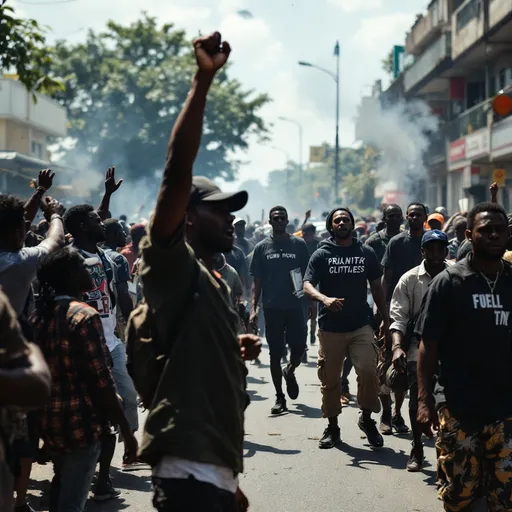

TANDAO MEDIA —In a nation where youth energize stadiums, dominate social media trends and lead protests, their influence diminishes when it comes to political decision-making. Despite nearly 80% of Kenya’s population, individuals under 35 often find themselves on the periphery of power.
Kenya’s young people are the lifeblood of political campaigns, mobilizing crowds and amplifying messages. However, once elections conclude, their presence in leadership circles wanes, relegating them to roles like campaigners or security personnel rather than decision-makers. This disparity raises the question: why do educated and exposed young voters continue to gravitate toward tribal political loyalties?
As youth transition from classrooms to campaign trails, cross-tribal friendships often dissolve, overshadowed by clan and community interests. Politicians, old and new, exploit this vulnerability every election cycle, perpetuating a system where the youth’s energy seldom translates into genuine political power.

The 2024 Gen Z-led protests against the Finance Bill marked a significant shift. Thousands of young Kenyans took to the streets, united not by tribe or party, but by shared principles and a collective resolve for change. This movement demonstrated the potential for youth-driven, non-partisan political engagement.The Challenge Ahead: Sustaining Political Engagement.The critical question now is whether this newfound energy will persist in future elections or fade, replaced by traditional tribal affiliations and empty promises.
President William Ruto’s recent appeal to parents and teachers to protect children from individuals aiming to corrupt their minds adds complexity to this dynamic. His remarks came shortly after protests at Butere Girls High School following the arrest of drama director Cleophas Malala.
A recent report by Inuka Kenya and the Civic Voice Initiative reveals that youth political participation is largely limited to voting and occasional demonstrations.The survey found that only 21.8% of youth engage in broader political activities, with many citing a lack of facilitation and support from political parties. Additionally, 64.4% feel that their parties do not encourage their involvement in civic discussions.

EDITOR’S PICK!
To harness the full potential of Kenya’s youth, it’s essential to bridge the gap between their enthusiasm and actual political influence. This requires structural changes within political parties, active facilitation of youth participation, and a concerted effort to transcend tribal divisions. Only then can the vibrant energy of Kenya’s youth be channeled into meaningful political transformation.



